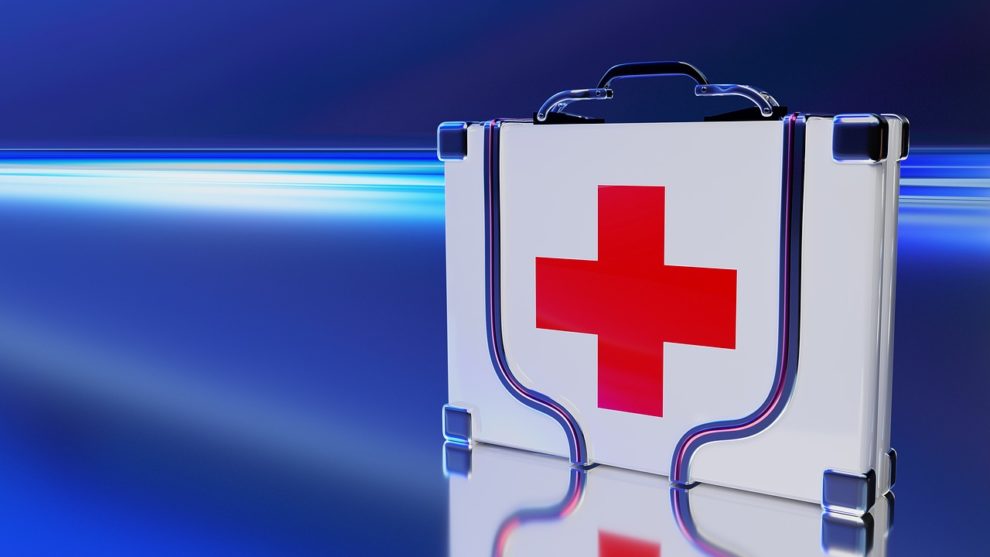Unfortunately, modern ecology, constant stress do not give us the opportunity to be 100% healthy, and in conditions of constant employment at work or at home, we rarely can find time to go to the doctor. There is only one way out – to have the most necessary medicines at hand. Of course, it is impossible to stock up on medicines for all occasions, but there are problems that occur all the time and need immediate response. That is the reason why you need to know and remember about the main medicines. At least the most basic thing is that you can use it at home without first consulting a doctor. So, what medicines and medical products should a first-aid kit consist of?
First aid
The first thing you need to have in your home medicine cabinet is drugs and medical products for treating wounds, abrasions, burns, bruises, to stop bleeding, etc. These include: iodine, povidone-iodine, drugs with dexpanthenol (for burns it is better to use panthenol spray or in the form of foam, in other cases an ointment or cream is suitable), chlorhexidine, dressings: bandages, plasters, sterile wipes, wipes with feracryl to quickly stop bleeding, etc.
Medications
Devices. Secondly, it is no longer possible to imagine a modern home first aid kit without measuring instruments, such as a thermometer and a tonometer. They must always be at hand, especially if there are elderly people and children in the family.
SARS
The most commonly used home remedies are pain relievers, which are typically used for toothache, headaches, and back pain. For children, there is Paracetamol in suppositories and syrup, which, in addition to the analgesic effect, has an antipyretic effect. Also in the home first aid kit, you need the means used to prevent and treat colds – vitamin complexes, collagen supplements, antiviral agents, antipyretics, nose drops, antitussives, etc.
Medicines for diseases of the gastrointestinal tract
In gastric disorders it is useful to have drugs on hand to relieve spastic pains, to relieve the symptoms of diarrhea in food poisoning, but not in infectious intestinal diseases – they are usually accompanied by high fever, and such enzyme preparations for use in overeating.
It is undesirable to use activated charcoal in case of poisoning (it is better to use Smecta, Filtrum-sti, etc.), since with frequent use and in large doses, activated charcoal tends to be deposited in the joints and kidneys in the form of oxalate salts, which can lead to the appearance of diseases such as arthritis, arthrosis, cholelithiasis.
Antihistamines
In case of allergies, it is better to stop your choice on new-generation antihistamines that will quickly relieve you of all allergy symptoms (itching, redness of the skin, nasal congestion), and, importantly, these drugs do not cause drowsiness, i.e., they can be used by people whose work requires high concentration of attention.
Heart disease
If there are patients with heart disease in the family, the minimum set will serve as a basis for you. People suffering from chronic diseases will need to add their medicines, which they use to relieve attacks and exacerbations, to their home first-aid kit.
General recommendations
In order for the first-aid kit to always be at hand, it is necessary to properly organize the storage of medicines. For them, you need to allocate a plastic box, a container that closes tightly and does not let in sunlight. Most medicine is afraid of bright light and require room temperature storage. Therefore, the box must be put in a locker, so that if necessary it is easy to get it. Besides, is not recommended to store them in the bathroom like many people do. The reason is that high humidity is dangerous for medicines.
Candles, interferon preparations and some other therapeutic agents are stored in the refrigerator. In a warm room, they can melt, and preparations with protein components can become inactivated. The box with the first-aid kit is stored in a place that small children or animals cannot reach. Medicines are a source of danger for them.
In order not to confuse which medicine is at home in a container, you do not need to take them out of their original packaging, pour them into jars. For each drug, keep the insert-instruction, even if it is well known. In an emergency, this will help you quickly determine at what dose to take the medicine.
The original packaging is necessary to control expiration dates. On a cardboard box and on an individual blister, bottle or ampoule, the expiration date of the product must be duplicated.
Be sure to check the expiration date on all medications in your first aid kit. Remove all expired medicines from the medicine cabinet. All tinctures, potions, and other questionable liquid dosage forms must be discarded. It is necessary to store medicines in accordance with the requirements that are given in the instructions for each drug.
